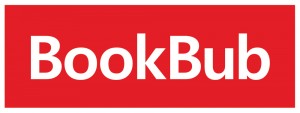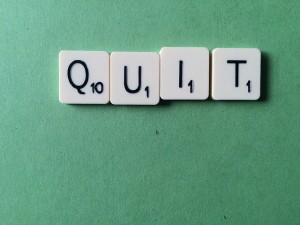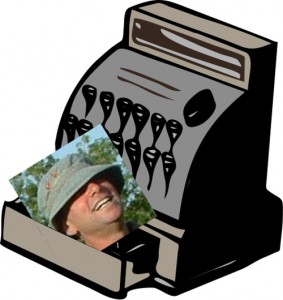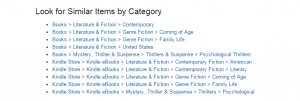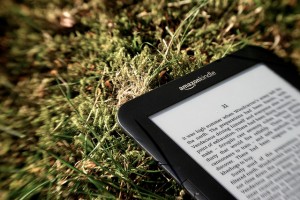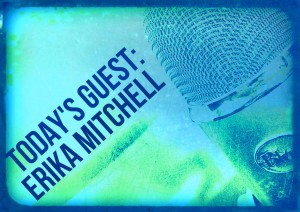self-publishing
The transformation of publishing as a result of the proliferation of e-books and self-publishing is an inescapable topic these days. As well as making every writer face the devil’s choice of whether to go traditional or go independent, this transformation has also created a new spinoff industry–you—the writer and author. Providers of author services are a growth sector of the economy.
As the director of advertising on Writer Unboxed, I’ve been thinking about how the development of author services further changes the job of being an author, adding responsibility for being an educated consumer of those services, but also what it means for blog owners.
Writing advice and advisors have always been around, but now, as well as ‘how-to write’ guides, there are DIY manuals for designing your own cover, formatting your own book, editing your own book, managing your own promotion. If you don’t want to go the full DIY route, you can buy a bunch of author-targeted software or you could hire some help–book cover designers, editors, book promoters, book formatters, packaging agencies, book advertisers, booksellers, marketing advisors, story ‘doctors’, indexers. The list could go on.
Many of these services have existed for a long time, but the providers traditionally worked directly with publishers. Some of these services are brand new, a product of the new e-book revolution.
All of them would like to gain your attention. Yes yours, because you, dear Writer Unboxed reader, are their niche market. Their intended clientele. Their bread and butter. And, yes, sadly, in some instances, their mark.
As with any industry, many of these service providers offer a valuable service and expertise, care about their reputation, and operate according to above board business practices. As with any industry, where there is money to be had, some of the service providers are out for the money. By whatever means they can get it.
Gaining your attention, let alone your patronage, is not easy. In a business where the standard legend is that all it takes to get published (and make millions) is to crank out some content, generate a file, and put it up for sale at one of the on-line booksellers, these author service providers not only have to reach their prospective clientele, they have to convince them that hiring a service provider is more valuable than DIY’ing it. Most people know when they need a lawyer. Not everyone knows when to hire a developmental editor, content editor, copy editor, or proof reader. Whether to hire a book packager or software that will generate the proper format for an ebook ‘automatically’ is equally unknown. That means even legitimate service providers have to be aggressively persuasive about the need for their services. That can make their promotional tactics more extreme–promising more for less or using gimmicks to get the prospective client’s attention.
For the author, this makes it absolutely critical to do due diligence before hiring any service provider or buying any service product. Ask for referrals from previous clients. Ask for a sample of work before you buy the whole package. Be clear about what services are and are not being provided. Advertising is a means of getting your attention, it is not a contract, a promise, a certainty.
Writer Unboxed is front and center […]
Read More
I recently stumbled across something called Parkinson’s Law. Originally expressed in a humorous essay published in the mid-1950s, this law states that “work expands so as to fill the time available for its completion.” The author, Cyril Northcote Parkinson, based this observation on his experience in the British Civil Service, and he intended this “law” to be interpreted as satire, poking fun at the highly bureaucratic manner in which his government coworkers functioned.
This law became popularized in recent years by Tim Ferriss, a self-described “human guinea pig” who rose to prominence with his best-selling book, The 4-Hour Work Week. In that book, Tim embellished Parkinson’s original language a bit, stating that “Parkinson’s Law dictates that a task will swell in (perceived) importance and complexity in relation to the time allotted for completion.”
But Tim wasn’t being satirical. A notorious “life-hacker” who is always looking for ways to do things faster, better, and easier, Tim is a big advocate of minimizing the time he allots to specific tasks. He emphasized Parkinson’s Law in his book, because he feels that when it’s accepted passively, it’s a mindset that works against us, making us far less efficient.
NOTE: Before I go any further, this article is *not* an endorsement of Tim Ferriss and his ongoing “life experiments.” I find him a very intelligent and intriguing person, but I also find some of his opinions and ideas to be… well, I guess “batshit crazy” is an apt term. But he’s definitely a thought-provoking guy, and I think the world is richer for having such an articulate and outspoken presence within the Zeitgeist. And I do think Tim makes some powerful points, some of which I’ll share in this post.
Parkinson’s Law and heavy drinking
I’ve definitely witnessed both the good and the bad sides of Parkinson’s Law. I have an old friend I’ll call Dave, an extremely talented guitarist who built an elaborate recording studio in his home. A very creative guy, Dave would spend countless hours working on original songs, some of which I played drums on. But I noticed he would get so caught up in making small tweaks to the parts he’d recorded, that he hardly ever actually finished a song.
The most extreme example of this was when I saw him after about a five-year hiatus during which our paths had not crossed. After exchanging some enthusiastic greetings, Dave said, “Keith, you gotta hear the latest version of that song you played on the last time you came over to my house. I just added some really cool parts to it, and it’s really coming along nicely!”
In nearly five years, my friend hadn’t yet finished a three-minute song that I’d frankly forgotten about. This was definitely a case of a task expanding to fill the time allotted to it – which in this case was all the time in the world.
Read MoreIf you missed Part 1 of my interview with BookBub’s Industry Marketing Manager–or if you have no idea what BookBub is–click HERE, then come back. Today I’ll wrap my two-part interview with BookBub’s Diana Urban.
But first… Something unexpected and fortuitous happened on the way to seeing this interview published. My publisher, Crown, decided to run a BookBub on my second novel, The Moon Sisters, and initiated a temporary price drop. That BookBub goes live today, so I orchestrated things here at WU so this post could go live today, too.
‘Show don’t tell,’ right?
Below is a screen capture of stats for The Moon Sisters on Amazon, taken on 9/17, the day before the BookBub. Just so you have all of the facts, my Amazon rank before the e-book was put on sale on 9/13 was 240,000. It dropped to about 6,000 after the sale began and I ran a BookSends promotion. I’ve also promoted over social media, but nothing too extravagant or repetitive.
This is where things stood on Barnes and Noble as of 9/17:
This is the second time Random House has run a BookBub for The Moon Sisters. The first time was very succesful–the eBook reached #10 in Nook books at Barnes and Noble, and #1 in the Mothers and Children fiction category on Amazon and #116 overall. If you’d like to follow along today, you’ll see for yourself what happens to a book’s numbers on the day of a BookBub; you can watch The Moon Sisters’ pages at Amazon and Barnes and Noble. BookBub’s daily email usually lands around 10-10:30 EST, and the effect is not immediate but, well, you’ll know it when you see it.
Numbers update (9/19), for interested followers:
Within 24 hours of the BookBub for The Moon Sisters, the book reached #61 in Kindle books on Amazon (an increase of over 22,000%). It was again #1 in the Mother’s and Children fiction category, #3 in Psychological Thrillers, #3 in Coming of Age fiction, and #5 in Family Life fiction. It reached #13 at Barnes & Noble in Nook books, #13 in Kobo, and #49 in iBooks.
Without further ado, the second part of my interview with Diana Urban. Enjoy!
The Writer Unboxed / BookBub Interview, Pt 2
TW – Q16: In terms of author sales following a BookBub, is there a point where a given book, series, or author starts to experience diminishing returns with BookBub promos, and if so how can that be avoided?
BB: Each genre has anywhere from hundreds of thousands to millions of subscribers. Books sent to these massive and highly engaged lists typically experience a significant spike in downloads and revenue within the span of a few days. This often leads to increased retailer rankings, better performance in recommendation algorithms, and even hits on major bestseller lists like The New York Times or USA Today. This increased visibility usually gives rise to even more downloads from readers who find the title through these other outlets. These extra sales beyond those generated by BookBub subscribers are what we call the “halo effect.”
Independent author Cheryl Kaye Tardiff is a great example of this. Here is a graph showing book sales of her thriller […]
Read MoreWhether you know what BookBub is or you don’t, whether you have a book for sale now or are still working on a draft, whether you’re independently or traditionally published, you’re going to want to read this Q&A. First, for anyone who doesn’t know what BookBub is about, BookBub is a company that promotes quality e-books with temporarily–and drastically–slashed prices, via a daily newsletter and web updates. They are good at what they do. Very, very good. In a world where we as authors can’t be sure what will or what will not sell books, this seems one sure thing: A BookBub promotion means sales and lots of them.
How to use BookBub is something that stymies many authors I know, though, so when I noticed BookBub’s star presence at this year’s Book Expo America, I approached. That’s when I met Diana Urban, BookBub’s Industry Marketing Manager. I told her my publisher, Random House, had run a BookBub for my second novel, The Moon Sisters, which went exceptionally well. (As I revealed in an essay for BookCountry, sales for the eBook of The Moon Sisters had never really taken off. But the day after my BookBub, the eBook of The Moon Sisters was ranked #10 in Nook books at Barnes and Noble, and #1 in the Mothers and Children fiction category on Amazon.) We chatted for a bit, and then I asked if she’d be interested in doing an interview with me for Writer Unboxed. Happily, she agreed.
[pullquote]Bio Box: Who is Diana Urban? Diana is the Industry Marketing Manager at BookBub, where she regularly publishes content on book marketing, self-publishing tips, and publishing insights at the BookBub Partners Blog. She was previously the Head of Conversion Marketing at HubSpot and is an expert in inbound marketing, content marketing, and lead generation. Diana is also the author of two Young Adult thrillers, and is writing her third novel. Follow her on Twitter at @DianaUrban.[/pullquote]
I recently asked the Writer Unboxed community–mostly through our Facebook group–to chime in with any questions they had about BookBub, and many of those questions are reflected here. So let’s get to it–part 1 of a two-part interview.
The Writer Unboxed / BookBub Interview, Pt 1
TW – Q1: It’s the prevailing opinion that BookBub is unique among a pool of book-promotion services, in that it seems to move the needle in a much more significant way and have a lasting sales impact on the books that are promoted. Why do you think that’s the case?
BB: One of our core goals has always been to provide authors and publishers with a way to run book marketing campaigns that drive real, measurable results. We’re a data-driven company, so every decision we make — from the categories we launch to the new members we acquire — is based on the results of rigorous testing and analysis, which helps us ensure that BookBub continues to be effective at moving the needle for our partners.
BookBub is also unique in that we’re providing curated recommendations to millions of loyal power readers who have specifically opted into genres they’re interested in reading. Our partners […]
Read MoreI have long been an advocate for not writing full-time.
Spoiler alert: I still am.
There’s a great deal of pressure in both directions. We all get romanced by the notion of the full-time writer’s life: wake up in the morning with nothing to do but write? Sounds amazing. But, modern society working as it still does on capitalist principles, we need money coming in, which is hard to come by early on in a writer’s career.
So, quit the day job to force yourself to produce? Or keep the day job, and risk neglecting your creative self, to the point where you might stop producing altogether?
As I started by saying, I’m an advocate for the day job. A month after completing my MFA, I started working full-time as a marketing proposal writer, and I’ve been working full-time all [mumblety-mumble] years since. Would I produce more fiction if I didn’t have so many hours of my life dedicated to writing the corporate stuff? You bet. Would I also be a huge drain on our household finances, resulting in pretty lousy trade-offs not just for me, but also my husband and two kids? Yeah. That’s the thing.
So why didn’t I call this post “Don’t Quit Your Day Job?” Because you aren’t me. It makes complete sense for me to keep working full-time, since it provides financial stability for my family, my boss is understanding if I need time off for retreats or book tours, my publisher’s timeline for new books doesn’t stretch me to the breaking point, and yes, I also really enjoy the work I do.
Your situation may be completely different. But you should still look at it logically and not emotionally. It’s a business decision, after all, and not just a creative one.
If all of the conditions below are present, quitting your day job to write full-time may in fact be the right option for you.
Read MoreEver since last month, when WriterUnboxed introduced the tinyCoffee widget to this website and created the opportunity for readers and writers to get together over a cup of virtual joe (readers’ treat) my head has been spinning – in some senses exploding – with the possibilities that this innovation presents. Not to put too fine a point on it, the revolution has arrived – and the middleman is dead! Thanks to tinyCoffee and its ilk, writers from Tarzana to Tanzania can now form an easy, fruitful, direct – and monetized! – relationship with their readers. Listen carefully… that Cheyne-Stokes respiration you hear? It could be conventional publishing breathing its last.
Read Morea snapshot of categories on Amazon; can be seen at the bottom of any e-book page
Our guest today is Penny C. Sansevieri, Founder and CEO Author Marketing Experts, Inc. Penny is a best-selling author and internationally recognized book marketing and media relations expert. She is an Adjunct Professor teaching Self-Publishing for NYU. Her company is one of the leaders in the publishing industry and has developed some of the most innovative Social Media/Internet book marketing campaigns. She is the author of fourteen books, including How to Sell Your Books by the Truckload on Amazon and Red Hot Internet Publicity, which has been called the “leading guide to everything Internet.”
I think every indie author should empower themselves with Amazon knowledge, and so I’ve made it my mission to help them decipher the site. I teach about Amazon, I write about it, and I’m passionately committed to helping authors succeed!
To learn more about Penny’s books or her promotional services, you can visit her web site at www.amarketingexpert.com. You can also connect with Penny on Facebook, Twitter, and on her blog.
Demystifying Keywords, Categories, and Themes For Amazon Indie Authors
To most indie authors, Amazon is really confusing. There seems to never be a clear path to success and once there is some clarity, the path changes yet again. If you feel like this, take heart. Though Amazon is tricky, it’s not a total mystery.
Let me start by presenting Amazon to you in a different light: Among all of the other things that Amazon does for us as consumers and authors, Amazon is a search engine. When you start looking at Amazon that way, a lot of the information in this article will start to make more sense.
When I view categories for my Kindle book, I see both “Books” and “Kindle Store” categories. Which categories matter most?
That’s a great question, but let’s look at this a bit differently. If you’ve explored the categories in print at all, you’ll likely see that they are vastly different from the eBook categories. That’s because the print categories are based on an industry standard of categorizing and sorting books — a standard used by e-stores and brick-and-mortar stores alike–called BISAC. Kindle store categories, on the other hand, are based on the things Amazon has learned we are looking for — years of data collected by Amazon’s search engine. Both are important, but they may not line up. Additionally, BISAC categories are limited while eBook categories offer greater variety and specificity of category. For that reason, I would stick with eBook categories as your primary focus.
It’s not a bad thing to have different book categories in both “Books” and the “Kindle Store,” by the way. It’s sort of like the old saying: The rising tide floats all boats. If you end up getting a lot of eyes on your book through a Kindle Store category, that can raise the exposure of your books in categories across the board.
PRO TIP: Amazon is really two websites in […]
Read MoreHere’s the brief answer to the title of this post:
Sell a lot of copies, strong five figures, if not six figures. Sell so many copies that traditional publishing is potentially less profitable for you than self-publishing.
Few people like the brief answer, so here’s the long answer.
By far, the No. 1 consulting request I receive is the author who has self-published and wants to switch to traditional publishing. Usually it’s because they’re disappointed with their sales or exposure; other times, that was their plan all along.
These authors ask me, in many different ways:
How can I get my book the exposure it deserves?
Back in ye olden days of self-publishing (before e-books), the message to authors was so much simpler: Don’t self-publish a book unless you intend to definitively say “no” to traditional publishing for that project. Yes, there was a stigma, and in some ways, it helped authors avoid a mistake or bad investment.
Today, with the overselling of self-publishing, too many authors either:
The assumption of #2 is one of the worst in the community right now. As far as #1, some authors end up self-publishing for the instant gratification (we have a serious epidemic of impatience), or to avoid what’s increasingly seen as a long, exhausting, and dumb process of finding an agent or securing book contract (which, of course, offers less profit than self-publishing).
I support entrepreneurial authorship, and authors taking responsibility for their own career success. But I would like to see more authors intelligently and strategically use self-publishing as part of well thought out career goals, rather than as a steppingstone to traditional publishing. It’s not any easier to interest an agent or publisher when you’re self-published, and since new authors are more likely to put out a low-quality effort (they rush, they don’t sufficiently invest, they don’t know their audience), chances are even lower their book will get picked up.
Before you self-publish, consider whether any of the following describe you. If you can say “yes” to at least a few of these statements, then you’re on a better path than most self-publishing authors I encounter.
Read MoreFor many of us, spring marks a new beginning. A period of reinvention. An opportunity to grow. It seems the same can be said of digital publishing. With e-book sales slowing, publishers are experimenting with new retail channels and digital marketing opportunities, while other key players are transforming their business models in hopes of reaching more readers. Here are the latest developments…
Trains, Planes, and…E-books
Publishers are setting their sights on travelers…
Free Kobo E-books Now Available on Southwest Airplanes
Kobo has teamed up with Southwest Airlines to offer free e-books to travelers who want to read digitally…https://bit.ly/1FqoAl8
HarperCollins Takes Flight with JetBlue Ebook Partnership
Back in November, JetBlue rolled out its new in-flight digital content platform, which came equipped with a selection of samples of twenty best-selling ebooks published by HarperCollins…https://bit.ly/1uBmDWV
Amazon Goes Airborne With JetBlue
Amazon is adding one more advantage to the long list of services it already offers its premium customers. So long as they fly with JetBlue, Amazon Prime members will have unlimited access to the airline’s Wi-Fi, allowing them to stream all the Amazon Prime content available to them – for free. This includes thousands of films and TV shows via Amazon Instant Video, more than one million songs, curated playlists and 500,000 eBooks on Kindle’s Owner’s Lending Library… https://bit.ly/1KVnThU
Read MoreToday’s guest is Erika Mitchell, author of Blood Money and Bai Tide, the first novel of a new series about CIA case officer Bai Hsu (Champagne Books, 2015). Erika cut her espionage teeth on James Bond marathons with her father at a formative age and has never looked back. She lives in the Seattle, WA area with her husband and their two tiny spies-in-training and welcomes new online friends at her blog, on Twitter, or on Facebook.
Of today’s post, Erika says:
One of the things that meant the most to me when I was just starting out as a writer was how helpful the more successful authors were to me. If, from my tiny corner of the Internet, I can promulgate that attitude of kindness, I will be well pleased.That being said, lines do occasionally need to be drawn. Equipping fellow authors with ideas for addressing these situations when they strike is as important to me as spreading the love. It’s vital that authors be able to mean what they say, and it should be understood that sometimes a kind “No” is an invitation to keep working on something that might not be finished yet.
That Awkward Moment When…
I’m going to paint you a picture. You are at a writer’s conference (let’s make it in Hawaii because I’m nice to you). You’re standing on a lanai with a dozen other writers, a sweating hurricane glass full of sunset-colored Mai Tai in one hand, a business card in the other. The person who just handed their business card to you is standing about a foot away, jabbering about their novel because you asked, “What’s your book about?” Let’s go wild here and say the other person’s novel is about a zombie love affair set in apocalyptic Boston. And there are lasers in it for some reason. Oh! And cat vampires!
[pullquote]The awkward moment comes in a variety of flavors, but many of them share a common theme: Someone wants something from you you’re not willing to give. A review, a blurb, an endorsement, an introduction to your editor, a private meeting in an alley somewhere. You get the idea.[/pullquote]What happens next slows everything down. Suddenly you’re Quicksilver from the X-Men movies. Your brain chugs along at normal speed while the world around you lurches to a stop. Your eyes track a single drop of condensation as it zigzags down your glass, out the corner of your eye you can see each flap of a hummingbird’s wings, and you know with some kind of creepy, prescient pessimism what’s going to come next:
The person in front of you is going to take a deep breath, blink, and then blurt out, “I’m actually going to self-publish my book next month. Will you blurb it for me?”
Welcome to the awkward moment (author edition).
The awkward moment comes in a variety of flavors, but many of them share a common theme: Someone wants something from you you’re not willing to give. A review, a blurb, an endorsement, an introduction to your editor, a private meeting in an alley somewhere. […]
Read MoreToday’s treat at WU has two faces—I wouldn’t be able to show you their hands, because they are typing too fast. Welcome to Johnny B. Truant and Sean Platt of Sterling and Stone, the wide website umbrella that houses their “story studio” of fiction imprints, blogs and podcast. Together, along with their other partner David Wright, they have produced an astonishing array of novels and stories over the past few years, averaging over a million and a half words a year. And popular words, from looking at their Amazon pages. Their genres run the gamut from westerns, horror, fantasy, and thrillers to children’s books. (And naughty stuff too, for large children.)
Their 2014 Write, Publish, Repeat self-publishing guide has hundreds of positive reviews; I’m one of the happy readers that regards it highly. Today we’ll discuss with Sean and Johnny how they work as writing collaborators, their remarkable productivity, and how they promote their work. And whether Sean will open up a winery. From now on I’m going to sit under their keyboards and just catch the discards—should be worth at least three novels.
Jumping right in, you call your main site, the Sterling and Stone site, a “story studio.” Will you explain that for the Writer Unboxed audience in terms of your imprints and the fact that you guys write in various genres, from horror, fantasy, to even children’s stuff.
Read More

